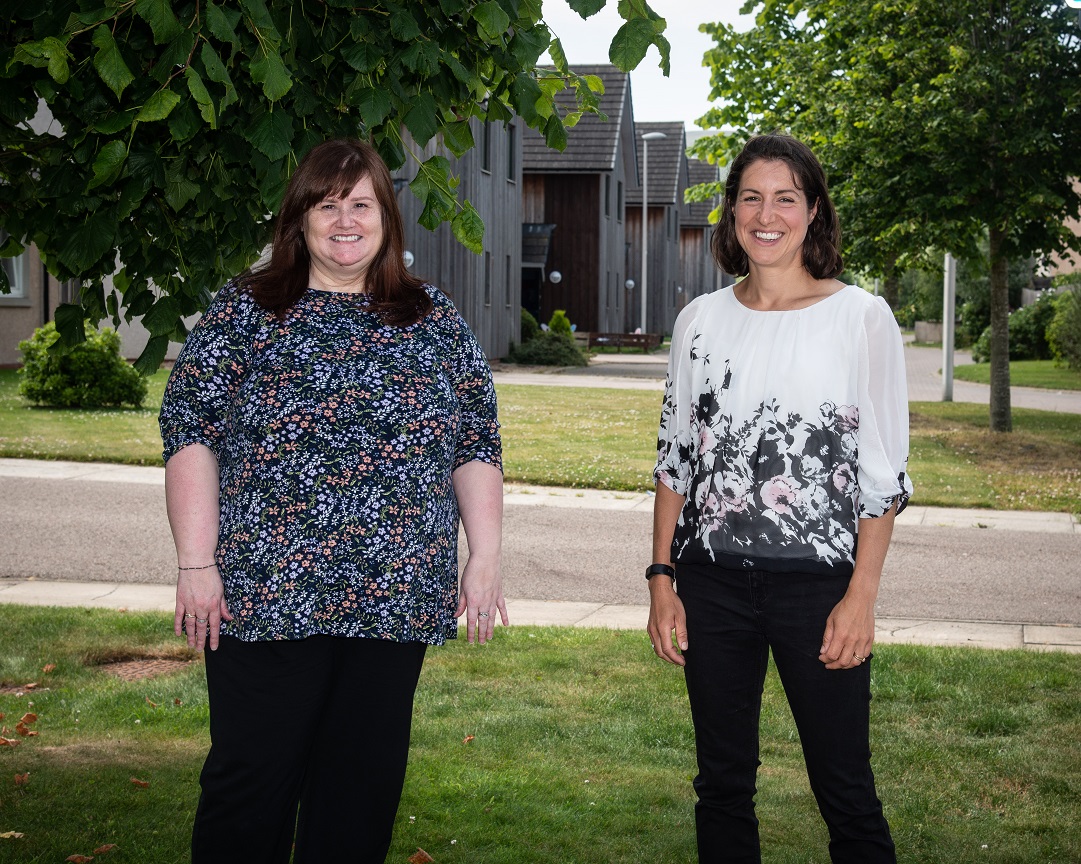Osprey creates key tenant support role after lockdown forces new way of working
Osprey Housing Group has built on the unexpected positives that have flowed from the Covid-19 pandemic to create a new role of tenancy sustainment officer.

Osprey’s tenant support officers Catriona Leggat (left) and Elaine Bowie
Like all Scottish social landlords, Osprey has had to rethink how to stay in touch with tenants and address the complex issues created by the pandemic response over the past 16 months.
Osprey has around 1,800 tenants in a wide range of properties across Aberdeenshire, Moray, and Aberdeen City, and from the start of the first lockdown face-to-face interactions with tenants had to switch almost exclusively to the phone and online.
Recruitment for the tenancy sustainment officer was carried out internally to ensure Aberdeenshire and Moray were both fully covered by staff already familiar with Osprey’s way of working and objectives.
Taking up the job-share position are Elaine Bowie, an Aberdeenshire Osprey housing officer for the past five years, and Catriona Leggat, who is based in Moray. Mrs Bowie works three days a week, and Catriona Leggat works two.
Housing services manager Stacy Angus said: “During our response to Covid, we have very much adopted a ‘support first’ approach in our service delivery to tenants.
“As well as providing households with the additional help they need when they need it most, this approach has also seen an improvement in arrears performance and higher tenant satisfaction levels.
“To continue to build on this, we have introduced this new role to focus solely on tenancy support. This move enables us to increase our early intervention practises and make a real difference in helping those facing difficult times sustain their tenancy.”
Elaine Bowie said: “It’s not enough for us to provide homes — we need to help our tenants develop the skills and knowledge they need to run and keep those homes so that they can feel safe, settled, and secure and be able to concentrate on other areas of their lives.”
As an example, she pointed to ‘furniture poverty’ — the inability to afford or access even basic furniture and furnishings, including domestic appliances.
‘In my new role, I’m much more easily able to identify and quickly address this type of issue,” Elaine added. “Catriona and I can now dedicate much more of our time to a larger area and provide focused, practical support to even more of our tenants so that they can get the help and advice they need.”
Elaine said that when a tenancy does not work out, it is not only costly for Osprey but can also cause serious harm to the individual concerned in terms of debt and lowered self-esteem.
This in turn can lead to a cycle of homelessness or serial re-housing which puts a strain on both local authorities and registered social landlords like Osprey.
“By contrast, there is a wealth of information that suggests that sustaining tenancies improves both individual and community outcomes by promoting stable and supportive neighbourhoods,” said Elaine.
“We cannot always measure this in financial gains — and it can be difficult to quantify or demonstrate when action has been taken to help improve a tenant’s quality of life — but overall, there is clear social value in supporting tenants.”






